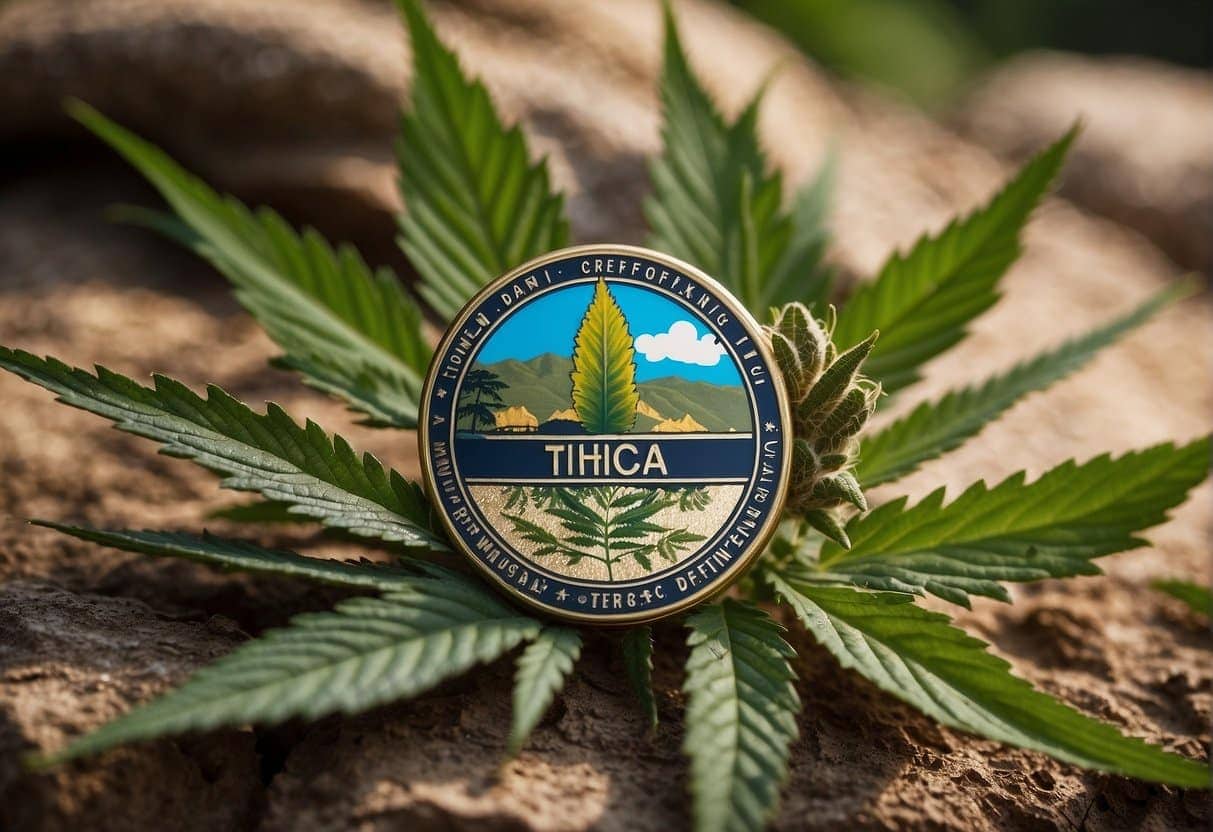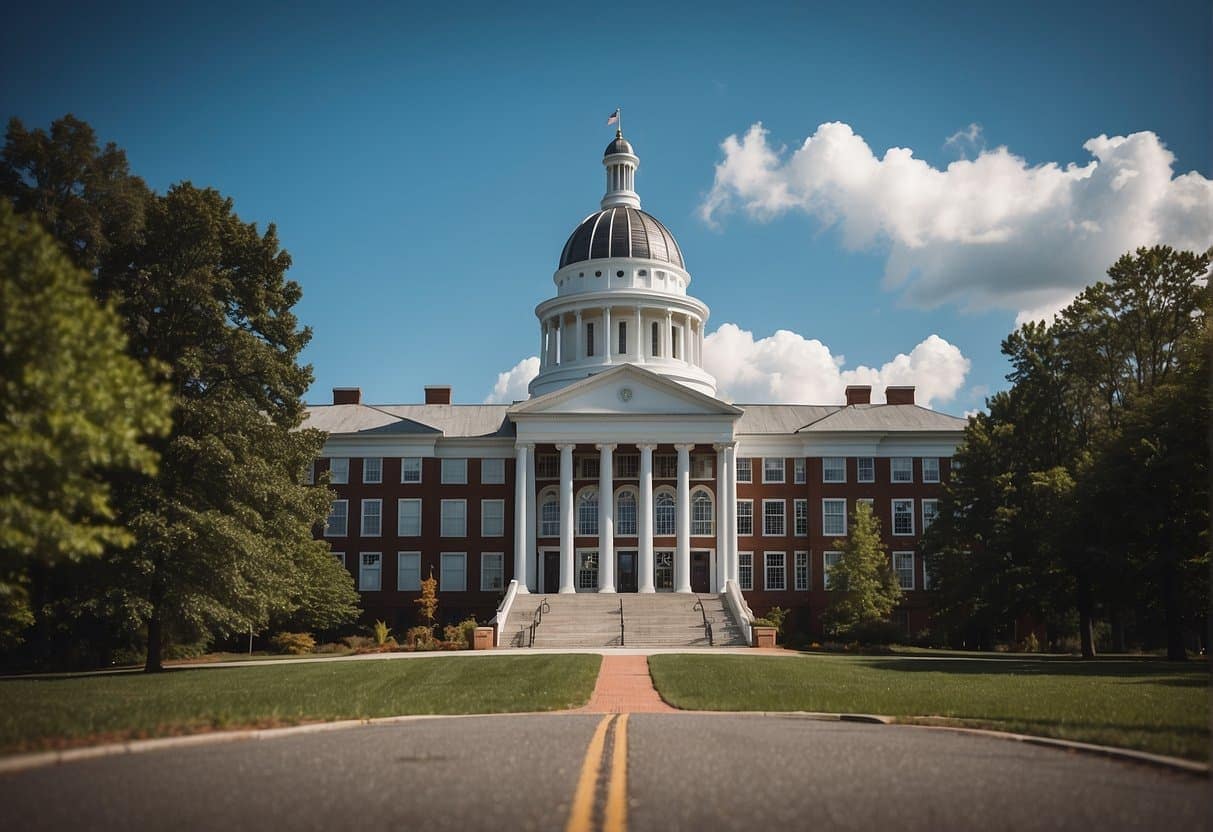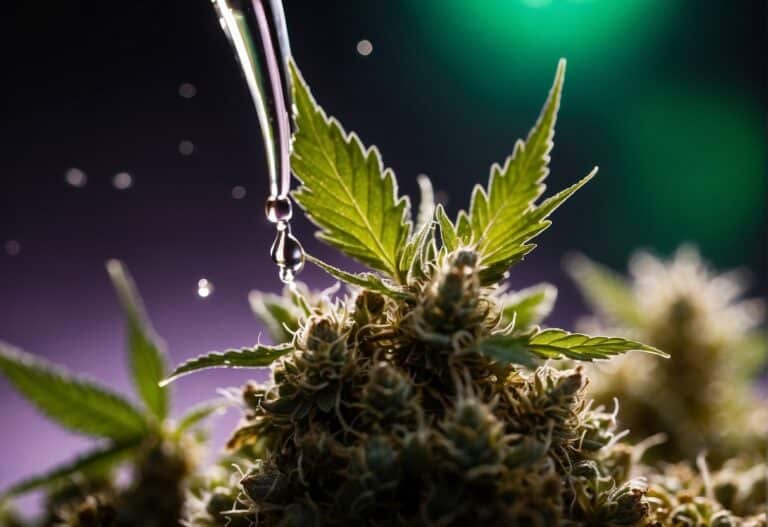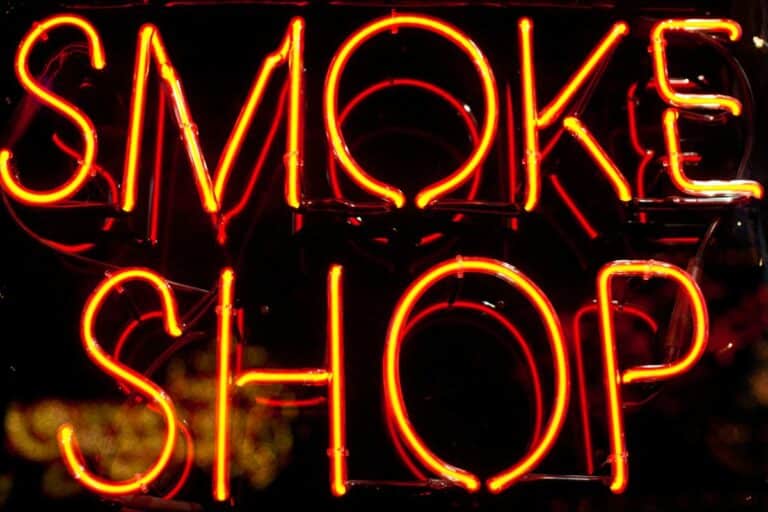Is THCa Legal in North Carolina? Clarifying State Regulations
In the heart of North Carolina, there’s a buzz about THCa and how it connects to THC – that powerful component in weed that shoots you to the stars. But guess what? THCa doesn’t mess with your head or lift you off the ground. It’s chill just the way it is. Despite the state giving a big fat no to the high-flying adventures of cannabis, THCa doesn’t rock the boat. However, throw in a little heat and presto, THCa transforms into THC, and that’s when the excitement kicks in. Keep reading as we take a wild ride into the THCa scene in North Carolina – believe me, this is *spicy* intel you won’t want to miss out on!
- What Is THCa?
- Legal Framework for Cannabis
- North Carolina State Law on Cannabis
- Legality of THCa in North Carolina
- Impact on Consumers and Industry
- Related Legal Considerations
- Future of Cannabis Legislation
- Frequently Asked Questions
- What are the current cannabinoid regulations in North Carolina as of 2023?
- Are there any recent changes to the laws regarding THCa in North Carolina?
- Can you find THCa products at recreational dispensaries in North Carolina?
- Is THC-O considered legal under North Carolina’s state laws?
- How does the legality of Delta-8 in North Carolina compare to THCa?
- Could the presence of THCa show up on a standard drug test?
The farm bill that was federally passed allowed states like North Carolina the opportunity to regulate the cultivation and research of hemp, which is defined as cannabis with a THC concentration of not more than 0.3%. This limit includes the total potential THC, calculated as the sum of delta-9-THC and a portion of THCa. Your interest in whether THCa is legal in North Carolina would depend on whether the THCa comes from hemp complying with these standards or from marijuana, which contains higher levels of THC.
As of current state laws, you can legally purchase and use hemp-derived products including THCa, as long as the total THC content doesn’t exceed the legal threshold. It is important for you to note that the hemp industry is regulated, and any cannabis-derived products must adhere to the established legal standards. Therefore, while THCa may be present in legal hemp products, its legality is contingent upon it not contributing to a THC concentration that surpasses legal limits.
What Is THCa?
Before diving into the intricacies of Tetrahydrocannabinolic acid (THCa), you need to understand that it’s a non-psychoactive cannabinoid found in the raw and live cannabis plant. While it shares a close relationship with THC, the compound famous for the psychoactive effects of marijuana, their effects and legal status differ significantly.
Chemical Composition of THCa
THCa is the acidic precursor to delta-9-tetrahydrocannabinol (THC), the active compound in cannabis that produces psychoactive effects. In its natural state, THCa is not psychotropic. Structurally, THCa contains an additional carboxyl group compared to THC – a small but crucial difference. When you apply heat to THCa through processes like drying, curing, or burning the plant material, it undergoes decarboxylation, which removes the carboxyl group and converts it into the psychoactive THC.
Comparison with Other Cannabinoids
Compared to other cannabinoids, such as cannabidiol (CBD), which is known for its potential therapeutic benefits without the psychoactive effects, THCa shares some non-intoxicating properties. However, it’s critical to distinguish between these cannabinoids. THCa is found in fresh cannabis plant material, whereas THC is typically found in dried and cured cannabis products and is responsible for the plant’s intoxicating effects. Therefore, THCa and THC differ not just in their chemical structure but also in their legal status and the effects they have on your body.
Legal Framework for Cannabis

You will find that the legal landscape of cannabis is delineated predominantly by federal regulations and complemented by state-specific laws that directly impact substances like tetrahydrocannabinolic acid (THCa) in places such as North Carolina.
Federal Cannabis Laws
Under current federal law, cannabis is classified as a Schedule I substance by the Controlled Substances Act. This classification deems the
North Carolina State Law on Cannabis

In North Carolina, cannabis laws are evolving, and it’s important for you to be aware of the current legalities concerning THCa, hemp derivatives, and medical marijuana.
Current Status of THCa
Tetrahydrocannabinolic acid (THCa) is a non-psychoactive precursor to THC found in the raw cannabis plant. As of my last update, North Carolina law has classified THC as a controlled substance, and this applies to THCa when it is decarboxylated to THC. However, if THCa is not converted to THC, it typically falls under the definition of hemp and is legal if derived from legally grown hemp with THC levels not exceeding 0.3%.
Regulations on Hemp and Hemp-Derived Products
North Carolina aligns with federal legislation on hemp cultivation and the production of hemp-derived products. The Agricultural Act of 2018, commonly referred to as the 2014 Farm Bill, allows for the legal cultivation of industrial hemp, provided it contains less than 0.3% THC. This makes hemp-derived products such as CBD oil legal in the state, as long as they meet the required THC threshold.
- Legally Produced: Products must be sourced from a licensed hemp grower.
- THC Levels: Must not exceed 0.3% delta-9 THC on a dry weight basis.
Medical Marijuana in North Carolina
As for medical marijuana, North Carolina has passed laws allowing the use of CBD for limited medical purposes, specifically for intractable epilepsy. However, the state does not have a comprehensive medical marijuana program, and the legal protections for medical use of CBD are narrow.
- Medical Condition: Must be diagnosed with a qualifying condition.
- Product Restrictions: High-CBD, low-THC products only.
You should remain vigilant for changes in legislation as state laws regarding cannabis are subject to change.
Legality of THCa in North Carolina
As you navigate the cannabis laws in North Carolina, it’s essential to understand the distinctions and regulations surrounding THCa and Delta-9 THC, as well as the rules pertaining to possession and purchase.
THCa vs. Delta-9 THC Regulations
Tetrahydrocannabinolic acid (THCa) is a non-psychoactive precursor to Delta-9 THC, the main psychoactive component of cannabis. In North Carolina, THCa is legal as long as it is derived from legally grown hemp that complies with federal laws, with a total THC concentration of not more than 0.3%. However, upon decarboxylation, which can occur naturally over time or with heat, THCa converts to Delta-9 THC, and this compound is subject to strict state and federal regulations.
Possession and Purchase
In the context of North Carolina laws, possession and purchase of THCa and products containing THCa are permissible if they originate from federally compliant hemp plants. However, should these products undergo transformation into Delta-9 THC, exceeding the legal limit of 0.3% THC, individuals may face legal ramifications under state law. It is crucial to purchase products from reputable sources to ensure they fall within the legal thresholds of THC content and are thus protected under the law.
Impact on Consumers and Industry
In North Carolina, the legal status of THCa profoundly impacts both consumers and industry operations in terms of safety, market dynamics, and compliance with federal and state laws.
Consumer Awareness and Safety
You should be well-informed about the legal stipulations of cannabis-derived products in your state. In North Carolina, industrial hemp-derived products are required to contain less than 0.3% THC by dry weight to be considered lawful. This measure ensures that consumers like you are purchasing products that are federally compliant. THCa, being a non-psychoactive precursor to THC, converts to THC when decarboxylated—actions such as heating—thereby affecting the product’s legality and potentially your safety.
- Safe Products: Ensures the sale of hemp products that are non-intoxicating.
- Regulatory Compliance: Keeps consumers within the legal parameters of hemp use.
Influence on North Carolina Cannabis Market
The industrial hemp market, inclusive of THCa-rich plants, plays a significant role in the North Carolina agricultural sector. Your understanding of the legal framework informs the benefits and potential industry shifts. Due to federal regulations, all hemp products must contain below 0.3% delta-9-THC to be legally sold; hence, you will find that cannabis plants and products emphasizing THCa presence are increasingly marketed to meet these legal thresholds. This influences the variety and nature of products available to you as a consumer.
- Market Expansion: Focus on products that maintain legal compliance.
- Consumer Choice: Emphasizes the potential benefits of low-THC products.
By keeping yourself updated on legislative changes and product offerings, you can navigate the North Carolina cannabis market safely and effectively.
Related Legal Considerations

The legal landscape of THCa can vary greatly depending on where you are in the United States, with some states having clear regulations while others operate in a gray area. It’s crucial for you to understand both the state-specific legal status and how state laws interact with federal regulations.
Legal Status in Other States
In California, cannabis, including THCa, is legal for both medical and recreational use, whereas in Texas, the legal system is much stricter, with cannabis being illegally except for very limited medical usage. Some states have taken a more progressive approach to cannabis and its derivatives. For example, Oregon and Nevada have legalized cannabis entirely, meaning THCa falls under the same legal status. Conversely, in states like Wisconsin and Georgia, cannabis laws are more restrictive, and possessing THCa could lead to legal consequences.
States with Full Legalization:
- California
- Nevada
- Oregon
States with Restrictive Laws:
- Wisconsin
- Georgia
Interaction with Federal Laws
Despite the varying legal status of THCa at the state level, under federal law, cannabis is still classified as a Schedule I controlled substance. This classification applies to all derivatives of the cannabis plant, which can create a conflict between state and federal jurisdictions. For instance, while you can legally purchase and use THCa in states like California and Nevada, this activity remains illegal under federal law, which could affect you especially on federal property or when crossing state borders.
Important Federal Considerations:
- Schedule I classification of cannabis and its derivatives
- Potential legal risks on federal property or when crossing state lines
Future of Cannabis Legislation
As you navigate the complexities of cannabis laws, it’s essential to grasp the evolving landscape, particularly with regards to research and legal status. This understanding is crucial in anticipating how legislation in places like North Carolina might alter the course for cannabinoids such as THCa.
Potential Changes to Legal Status
You may encounter shifts in the legal landscape of cannabinoids, with THCa potentially undergoing reclassification. Current cannabis laws within the Controlled Substances Act could be transformed, either tightening regulations or offering a more permissive framework. North Carolina’s history of adjusting legislation in response to both political and public pressure could well see future modifications to how THCa is governed. The outcome is contingent on deliberations in legal circles which consider evolving societal and medical perspectives.
Research and Developments
Ongoing research plays a pivotal role in shaping cannabis legislation. As researchers unearth more about THCa and its benefits, laws may adapt accordingly to accommodate new findings. The current legal stipulation in North Carolina defines a threshold for THC, not THCa, often at the center of discussions around legal cultivation of hemp (Industrial Hemp’s Impact). This emphasis on research could drive future legal frameworks, arguably supporting a more informed and nuanced approach to regulation. Moreover, advancements in understanding how cannabinoids operate could lead to refined methodologies in measuring and legislating THC and THCa content.
Frequently Asked Questions
When inquiring about THCa’s legal status in North Carolina, it’s important to be aware of the specific cannabinoid regulations in the state, as they can differ from federal guidelines.
What are the current cannabinoid regulations in North Carolina as of 2023?
In North Carolina, your access to cannabinoids is regulated. Hemp-derived cannabinoids with less than 0.3% THC on a dry weight basis are legal due to the passage of the Farm Bill in 2018. However, marijuana remains illegal for recreational use.
Are there any recent changes to the laws regarding THCa in North Carolina?
There have been no significant changes to laws specifically addressing THCa in North Carolina. It remains a gray area legally, much like many other hemp-derived cannabinoids.
Can you find THCa products at recreational dispensaries in North Carolina?
Since recreational cannabis is not legal in North Carolina, you cannot find THCa products at recreational dispensaries, as these types of establishments do not exist in the state.
Is THC-O considered legal under North Carolina’s state laws?
THC-O is not explicitly legal in North Carolina. You should exercise caution, as state laws around synthetically modified compounds like THC-O can be complex and subject to enforcement discretion.
How does the legality of Delta-8 in North Carolina compare to THCa?
Delta-8 is in a similar legal situation to THCa in North Carolina, located in a legal gray area. While not specifically regulated, Delta-8 could potentially be considered a controlled substance based on its psychoactive properties.
Could the presence of THCa show up on a standard drug test?
Yes, THCa could convert to THC in your body and therefore may be detectable on a standard drug test, even if THCa itself is not the target of the test.







